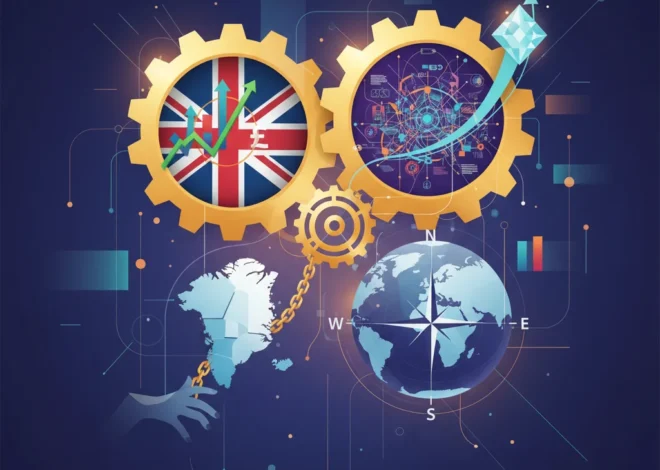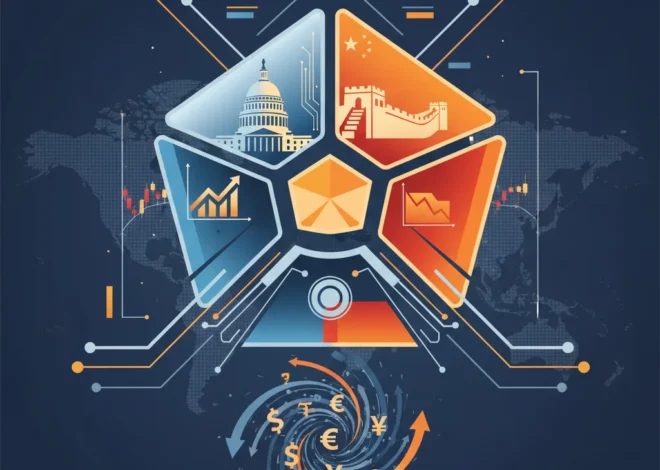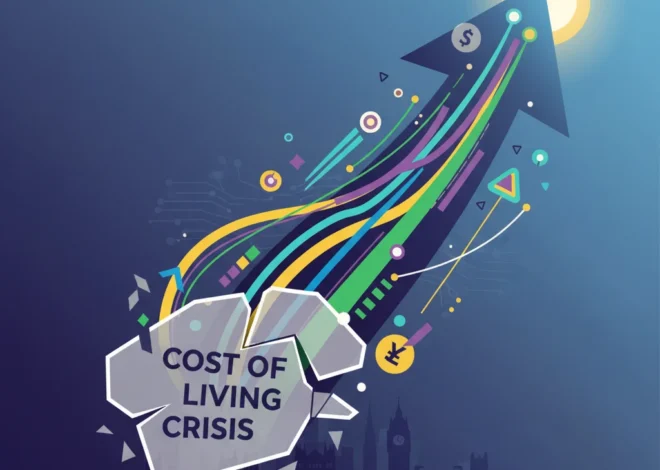
The Temu Effect: How Your Shopping Cart Is Quietly Reshaping Global Economics and Politics
The Age of Instant Gratification: A Double-Edged Sword for the Global Economy
In the time it takes to read this sentence, you could order a new set of headphones, a week’s worth of groceries, or a niche kitchen gadget and have it scheduled for delivery tomorrow—or even today. Platforms like Temu, Amazon, and Uber have revolutionized our lives by collapsing the space between desire and fulfillment. This is the pinnacle of modern capitalism: a world of infinite choice, hyper-personalization, and frictionless convenience, all available at our fingertips. But what if this consumer paradise is creating a profound and dangerous disconnect in another critical area of our lives: our relationship with the state?
This is the central idea behind what could be called the “Temu Theory of Populism,” a concept recently explored in the Financial Times. The argument is both simple and startling: the private sector has trained us to be impatient, demanding customers, while the public sector continues to treat us as citizens who must wait in line. This growing chasm between our seamless experience as consumers and our frustrating experience as citizens is not just an inconvenience; it’s a powerful, often-overlooked engine driving political instability and reshaping the landscape of the global economy.
The Great Expectation Gap: Private Sector Speed vs. Public Sector Gridlock
The core of the issue lies in a fundamental mismatch of operational models and user expectations. The private market, driven by fierce competition and technological innovation, has become relentlessly efficient. In contrast, the state—by its very nature—is designed for deliberation, regulation, and universal service, not for speed or bespoke solutions. It must serve everyone, not just a target demographic, and must operate within a web of laws and democratic processes. The result is a stark and jarring experiential divide.
Consider the contrast in these everyday scenarios. This table illustrates the chasm between the world of consumer capitalism and the world of civic engagement.
| Activity | The Consumer Experience (Private Sector) | The Citizen Experience (Public Sector) |
|---|---|---|
| Opening a new account | A 5-minute process on a fintech app like Revolut or Chime, using facial recognition. | A multi-day (or week) process involving paper forms, in-person visits, and manual verification at a government agency. |
| Resolving an issue | 24/7 AI-powered chatbots or live customer service agents who can often solve the problem instantly. | Navigating complex phone trees, waiting on hold for hours, or submitting a formal complaint with an uncertain resolution timeline. |
| Receiving a product/service | Same-day or next-day delivery with real-time tracking, as offered by Amazon Prime. | Waiting 6-8 weeks for a new passport or driver’s license, often with opaque status updates. |
| Making a payment | One-click checkout, automated billing, and seamless digital wallets. | Mailing a check, navigating a clunky government portal, or facing penalties for complex tax filing procedures. |
This isn’t a critique of public servants; it’s an observation of systemic design. A private company can fire a difficult customer, but the state cannot fire a difficult citizen. As one analysis points out, this inherent difference means no state can ever truly match the convenience standards set by the private market. The consequence is a citizenry that feels increasingly let down, not because government services are necessarily getting worse, but because their private-sector benchmarks are accelerating at an exponential rate.
The Miller Doctrine: Decoding the Economic Blueprint for a Potential Second Trump Term
The Financial Fallout: How the Gap Impacts Investing, Banking, and the Stock Market
This experiential gap has profound implications for finance and investing. On one hand, it explains the meteoric valuations of technology companies that master the art of convenience. The ‘convenience premium’ is a powerful driver on the stock market. Investors reward companies that eliminate friction from our lives, pouring capital into everything from e-commerce giants to financial technology startups that simplify payments, loans, and trading.
The world of banking provides a perfect case study. Legacy banks, often encumbered by regulations and outdated infrastructure, struggle to compete with nimble fintech players who offer seamless, mobile-first experiences. The success of neobanks and platforms like PayPal or Block isn’t just about lower fees; it’s about respecting the user’s time and providing an interface that feels as intuitive as a social media app. They have capitalized on the public’s dwindling tolerance for bureaucracy.
However, this trend also introduces a significant and often underpriced risk for investors: political instability. When citizens feel the state is failing them, they become more receptive to populist leaders who promise to “drain the swamp” or “break the system.” These movements, fueled by legitimate frustration, can lead to unpredictable policy shifts, trade wars, regulatory upheavals, and social unrest—all of which create volatility and risk in financial markets. The very force driving up the value of tech stocks could be simultaneously undermining the stable political and economic foundations that all markets depend on (source).
Navigating the New Economic Reality: Strategies for Leaders and Investors
Understanding this dynamic is crucial for business leaders and investors alike. The expectation of convenience is no longer a perk; it’s the baseline. Any business, from retail to B2B services, that introduces friction into the customer journey will be punished by the market.
For investors, the key takeaways are twofold:
- Acknowledge the Convenience Premium: Continue to identify and invest in companies that are leaders in user experience and logistical efficiency. Their moat is not just their technology, but their deep understanding of modern consumer psychology.
- Price in Political Risk: Do not discount the macroeconomic risks posed by rising populism. Diversify portfolios to hedge against political volatility in key markets and pay closer attention to social sentiment as a leading indicator of potential economic disruption. A high-flying tech portfolio is vulnerable if the society it operates in becomes unstable.
The rise of populism is often attributed to economics, identity, or culture. But perhaps one of the most potent, yet invisible, factors is the daily, frustrating comparison we make between getting a package from across the world in 24 hours and waiting two months for a government permit. The private sector has made us all powerful, impatient consumers. The challenge now is figuring out how to be patient, engaged citizens in a world that no longer values waiting.
The Sideline CEO: What Irrational Behavior at Youth Sports Teaches Us About Modern Investing
The implications for governance are immense. Governments that recognize this expectation gap and invest heavily in digital transformation and user-centric public services may be better positioned to maintain public trust. Those that fail to do so risk becoming increasingly irrelevant and despised by a populace accustomed to a world that caters to their every whim. The friction isn’t just in the paperwork; it’s in the very fabric of our social contract, and it’s starting to tear.
Stuck in First Gear: An Investor's Analysis of the Luxury EV Slowdown
Conclusion: The Unintended Consequence of a Frictionless World
The “Temu theory of populism” is more than just an interesting observation; it’s a critical lens through which to view the modern economy and its political ramifications. The relentless pursuit of convenience, celebrated as the triumph of capitalism, has created an unintended and powerful political force. It has recalibrated our collective patience to near zero, leaving the slow, deliberate, and essential machinery of the state looking hopelessly archaic. As we optimize our lives with ever-smarter technology, we must grapple with the untidy reality that a functioning society requires more than just one-click solutions. The future of both our portfolios and our politics may depend on bridging this great expectation gap before it widens into an unbreachable chasm.


